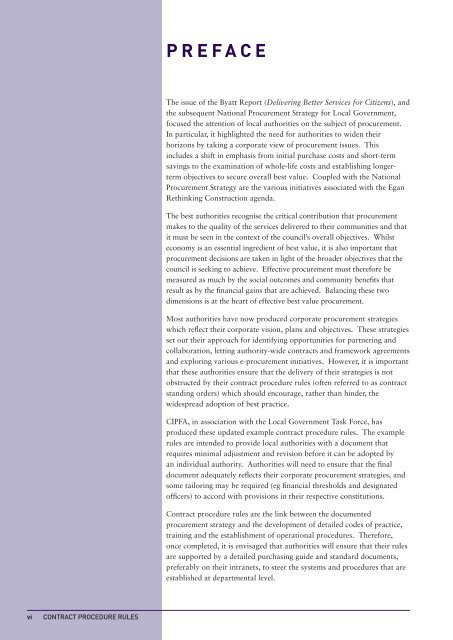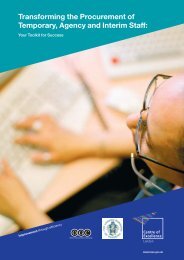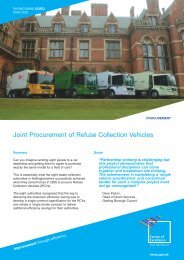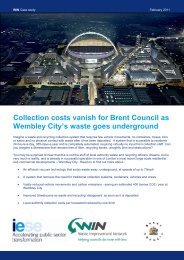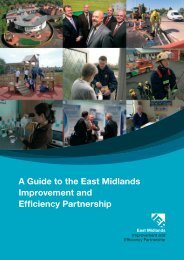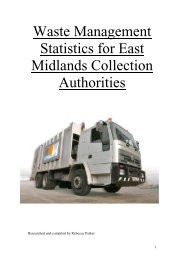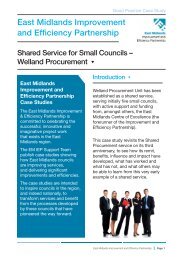CONTRACT PROCEDURE RULES - SPS Consultancy
CONTRACT PROCEDURE RULES - SPS Consultancy
CONTRACT PROCEDURE RULES - SPS Consultancy
Create successful ePaper yourself
Turn your PDF publications into a flip-book with our unique Google optimized e-Paper software.
PREFACE<br />
The issue of the Byatt Report (Delivering Better Services for Citizens), and<br />
the subsequent National Procurement Strategy for Local Government,<br />
focused the attention of local authorities on the subject of procurement.<br />
In particular, it highlighted the need for authorities to widen their<br />
horizons by taking a corporate view of procurement issues. This<br />
includes a shift in emphasis from initial purchase costs and short-term<br />
savings to the examination of whole-life costs and establishing longerterm<br />
objectives to secure overall best value. Coupled with the National<br />
Procurement Strategy are the various initiatives associated with the Egan<br />
Rethinking Construction agenda.<br />
The best authorities recognise the critical contribution that procurement<br />
makes to the quality of the services delivered to their communities and that<br />
it must be seen in the context of the council’s overall objectives. Whilst<br />
economy is an essential ingredient of best value, it is also important that<br />
procurement decisions are taken in light of the broader objectives that the<br />
council is seeking to achieve. Effective procurement must therefore be<br />
measured as much by the social outcomes and community benefits that<br />
result as by the financial gains that are achieved. Balancing these two<br />
dimensions is at the heart of effective best value procurement.<br />
Most authorities have now produced corporate procurement strategies<br />
which reflect their corporate vision, plans and objectives. These strategies<br />
set out their approach for identifying opportunities for partnering and<br />
collaboration, letting authority-wide contracts and framework agreements<br />
and exploring various e-procurement initiatives. However, it is important<br />
that these authorities ensure that the delivery of their strategies is not<br />
obstructed by their contract procedure rules (often referred to as contract<br />
standing orders) which should encourage, rather than hinder, the<br />
widespread adoption of best practice.<br />
CIPFA, in association with the Local Government Task Force, has<br />
produced these updated example contract procedure rules. The example<br />
rules are intended to provide local authorities with a document that<br />
requires minimal adjustment and revision before it can be adopted by<br />
an individual authority. Authorities will need to ensure that the final<br />
document adequately reflects their corporate procurement strategies, and<br />
some tailoring may be required (eg financial thresholds and designated<br />
officers) to accord with provisions in their respective constitutions.<br />
Contract procedure rules are the link between the documented<br />
procurement strategy and the development of detailed codes of practice,<br />
training and the establishment of operational procedures. Therefore,<br />
once completed, it is envisaged that authorities will ensure that their rules<br />
are supported by a detailed purchasing guide and standard documents,<br />
preferably on their intranets, to steer the systems and procedures that are<br />
established at departmental level.<br />
vi<br />
<strong>CONTRACT</strong> <strong>PROCEDURE</strong> <strong>RULES</strong>


